We hear it talked about a lot in the tech circles, but if you were hoping to get a glimpse of what Android’s “fragmentation” looks like, the boys at Staircase 3 have a nice graphic for you. These guys have been tracking 681,900 Android devices over the past 6 months that have downloaded their OpenSignalMaps (a network monitoring app) and this is what they’ve found: 599 distinct brands, 3,997 different Android devices, spanning across 195 countries. And that, folks, is why they call it the Android army.
Taking a look at the graphic, you can easily see which Android devices have the majority market share, with Samsung devices dominating the chart and their Galaxy S2, specifically, taking top honors among the distinct models surveyed. Keep in mind, this data — while nice to look at — isn’t exactly a complete and exhaustive study. The data is only taken from those that have used the OpenSignalMaps application and even then, custom ROMs can muddy up the data with unique “android.build.MODELs.”
While fragmentation gives users the option of choosing just about any device with the specs to fill their need, you can see that it poses a challenge on developers looking to make a single app tailored to fit them all. Would love to see more official statistics like these from the boys over at Google HQ. Would make it much easier to recommend Android devices more likely to receive updates based purely on market share.


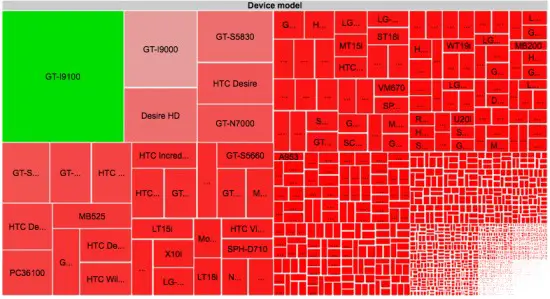
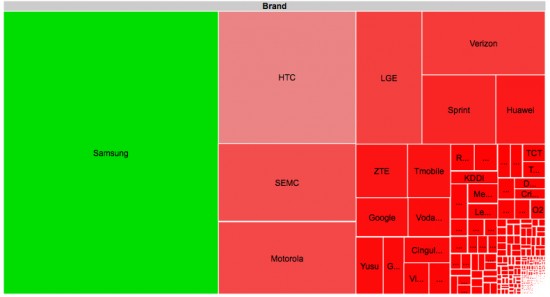

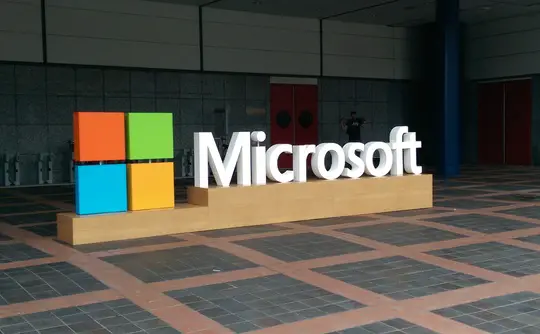

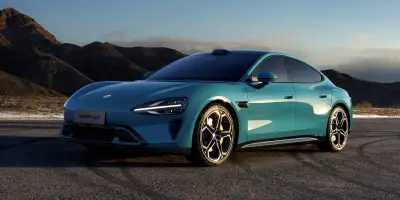

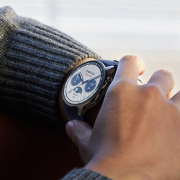
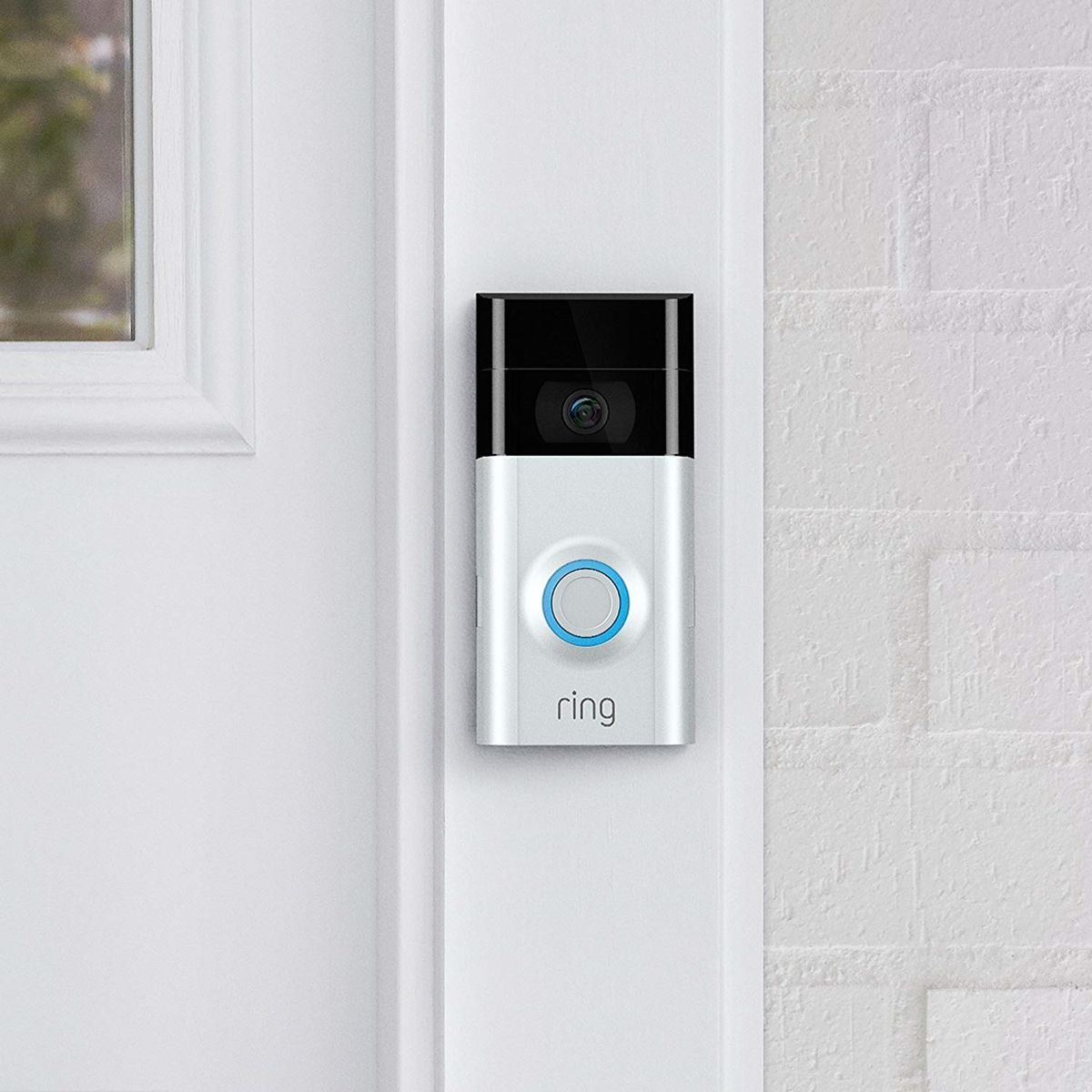

what is this showing exactly? i see OEMs, carriers, and google all thrown in here. makes little (if any sense) seeing as i can have a device that is google, samgsung, and verizion all at once.
It’s whatever the phone is reporting back, so I guess that means some phone report their brand as “Vodaphone” instead of “HTC” or even “Google”. Each model might report differently…it basically shows just how crazy it is to try to cater to every Andtoid phone model.
Not at all. This shows how easy it is to develop an app for 3990+ Android devices. This one app, with only minor UI tailoring for a few esoteric devices, works on all of these.
This is not a negative.
I wonder how Windows “fragmentation” looks through those eyes. Probably a lot worse, when you take into account all the different PC configurations, too, and the fact that 50% of Windows users are still on an 11 year old OS.
Yes but in general, Windows programs will work across all systems. One can’t say the same for Android applications.
Yes, you can. Any app programed targeting the 2.1 API’s will work with the 4.0 API’s, just as an application targeting the Windows XP API’s will work in Windows 7.
Generally, the only time this doesn’t work, is if the app is targeting specific hardware, or an exotic API feature that has been removed/replaced….just like in Windows.
Here’s my thoughts, this splintering is really getting on my nerves. Everyone wants a piece of the Android pie, but stop putting out crappy phones with low specs, old OS’s, and unheard of processors. I really love google and all but despite there vows to put a end to this monstrosity they haven’t and will not.
That being said if the new iPhone has an bigger screen, higher res, and imaps I’m going back to apple. I love the Android customization but slow updates and using the new os as a selling point to make a buck is disheartening…
I have a Verizon nexus still on 4.02 and I finally figured out why I’m still on 4.02. Its simple Verizon is waiting to get their Isis system running so that they can upload more bloat ware unto this phone.
Apple would never allow these carriers to do that to the iphone. Google should get a damn backbone and stand up to these carriers
agreed. although this is why im sticking to a gsm nexus as my phone. i do prefer me the ipad over android tablets.
Not everyone can afford or need a high end phone, making low end phones happens because there’s a market for them.
Google must standup against carriers if they want Android to survive.
While “fragmentation” may seem bad, play out this scenario in your mind.
Take 200 smartphone users of the two most popular OS platforms out there, Android and iOS.
Take 100 iOS users, and their iPhones and put them in a room. Ensure that none of the iPhones have any unique identifiers such as cases or customized housings. Take the 100 iPhones and place them in the center of the room with room to walk between each row of phones.
Take 100 Android users, and their Android phones, and put them in a room. Ensure that none of the Android phones have any unique identifiers such as cases or customized housings. Take the 100 Android phones and place them in the center of the room with room to walk between each row of phones.
Allow the iOS and Android users to enter the rooms that hold their phones, start a timer, and see which room empties first with each user having properly identified their phone.
Which do you think will empty first?
After that, then ask yourself does “fragmentation” really matter all that much, if the odds of you running into a complete stranger, with the same phone, are a lot lower than if you own an iPhone? I don’t know about anyone else, but I enjoy being different.
That’s the oddest argument for Android I’ve heard. I don’t see why you’d care whether or not a complete stranger has the same phone as you and just like iPhone users who think that they belong to some exclusive club, you’re kidding yourself. Yes, it’s more exclusive club than the iPhone hipster club, but it’s still meaningless.
The choice of sizes, specifications, prices and so on is the plus side of Android’s openness and fragmentation is a small price to pay.
If feeling unique is important to you, may I suggest Windows Phone 7? You’d be hard pressed to find 100 users in the first place!
The entire point of my argument is that fragmentation is not bad. As I stated, though, I enjoy being different. Every time I pull my Epic 4G Touch out in a crowd, there’s at least one person who asks what it is and are amazed by it. You don’t get the same reaction owning and iPhone because they’re all the same.
or WebOS..
Not sure if that argument is the best. I am a Mac user and work in a mostly mac shop. I use Android. I am asked why I don’t use the iPhone and it not because I do not want to mix it with someone elses but more about choice. I like the size of the evo screen and the kick stand. Others tell me they do not like the size. That is fine, they can then pick a different android that fits their size. iPhone is a one-size-fits-all device. For me, their screen size is too small so I will not even consider it. That is what makes Android fragmentation good. On the developer side, since I create apps for mobile phones, fragmentation sucks. Having to test it on so many different devices since they all seem to load things differently sucks.
“Would make it much easier to recommend Android devices more likely to receive updates based purely on market share.” ?? Updates aren’t related to market share though. Different manufacturers produce updates at different speeds and different carriers cause other varying delays. I’d like to see a graphic created on historical speed of updates based on the manufacturer and the carrier combination.
I prefer Android, but one of my biggest gripes is that unless you have a Nexus device, expect minimal support. I’ve had the Moto Triumph for 10 months, and it came out already behind the release curve with 2.2. Androids have seen updates 2.3 and 4.0 and we’re already looking at a 5.0 release, and I’m still stuck on 2.2
Even with a Nexus device we have a hard time getting updates that we need.
That’s not true. I have the original t-mobile nexus s and I get updates within a weak or 2 of the release. You must be on sprint with nexus s. You should blame Sprint for that.
Well, there is more to Nexus devices than just the Nexus S. I actually have the gnex on Verizon, nice guess though. We were shipped with 4.0.2 and are still on it. So much for timely updates…
This is the only reason android has their phones in more peoples hands. I’ve had an android phone for 3 years now and I love it but I’m ready to jump ship when the iphone 5 comes out. I’m sick of slow updates, laggy UI, and some pretty shitty apps. I have an iPad and an android tablet and I’ll take the iPad any day. And if you really hate having the same phone as everyone else you can customize an like crazy. (different colours, wood covers and what not). That’s just my opinion so don’t jump on me as a Apple fan boy or something.
If your android phone is 3 years old and your android tablet is a cheap $100 tablet then you’re right. All Android is not equal like with iPhone. There are many different choices and you need to be savvy enough to buy quality Android devices and not junk. If you compare the samsung tab 10.1 and GNexus then you’re not right. Marginal variances in display quality that you wouldn’t notice unless holding side by side. The app market for android is also pretty incredible. Most apps today that are worth anything are on both platforms.
lol, the only reason why your sick of slow updates is because you refuse to jump on the flagship android phone (the Nexus phones)…. lucky for you that the only iphone IS also a flagship phone because there are no other iphones made by other manufacturers.
This sounds like job security for Phandroid writers.
“While fragmentation gives users the option of choosing just about any
device with the specs to fill their need, you can see that it poses a
challenge on developers looking to make a single app tailored to fit
them all.”
That is not at all what is happening here. In the original article by these folks the only “tailoring” they’ve done is by request for the UI of a few esoteric or exotic devices.
What this really shows is how many devices a single app can support with little to no “custom tailoring”.
Target the API, not the hardware. For all but the applications that *need* to make use of the NDK, this, largely, works. Windows apps that target WinXP API’s (or win95 API’s) will generally work with on any version higher, the same goes for Android. It’s only when specific hardware support comes into the mix that things get a little wonky…and the Android devs have no more or less to deal with here than the Windows game-devs ever have.